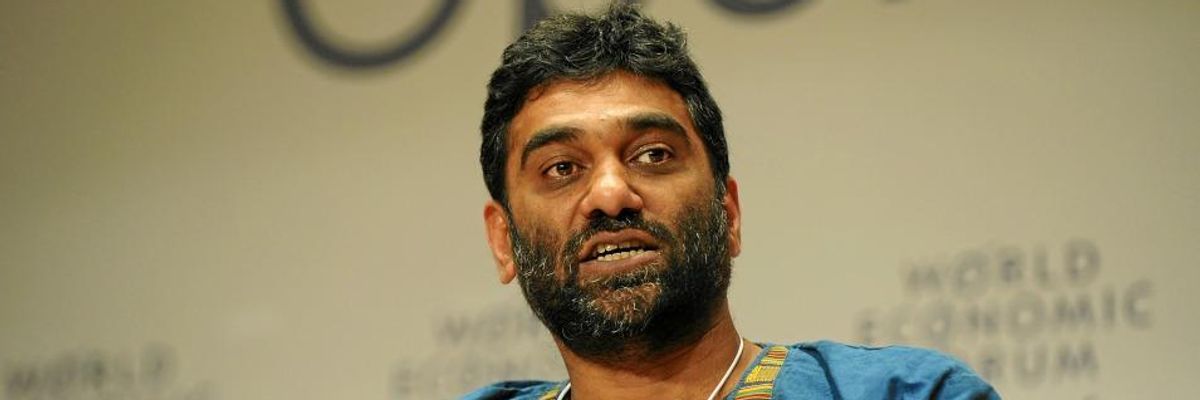The head of Greenpeace International was the target of a surveillance request ahead of the 2010 G20 Summit in Seoul, according to leaked documents revealed byAl Jazeera and the Guardian.
Months ahead of the meet, South Korea's National Intelligence Service (NIS) requested from South Africa's State Security Agency (SSA) "any possible security threat against the president of South Africa during the G20 summit," and asked for a "specific security assessment" on Greenpeace's Kumi Naidoo, as well as two other South African nationals who had been jailed in Pakistan in 2004.
Al Jazeera reports that these were just three of "a torrent" of requests to the SSA "for information on 'rogue NGOs,' politicians and exiled groups from intelligence agencies around the world--many of them declined as inappropriate by the South Africans."
Columnist Henry Porter writes that the leak "shows that monitoring of legitimate and law abiding targets has become the default practice in democratic states."
Naidoo said the revelation was not entirely surprising, and that the surveillance request shows the desperation of those seeking to block the environmental movement.
"Since the Edward Snowden and WikiLeaks information has come out, you would be naive not to anticipate that governments might be doing this," he toldDemocracy Now! on Wednesday. "But, you know, it's one thing sort of knowing that governments might be doing that; it's another thing having it confirmed by looking at these cables."
He referenced Mahatma Gandhi's line: "First they ignore you, then they laugh at you, then they fight you, and then you win."
"They're not ignoring us," Naidoo continued, "They're not laughing at us. They're fighting us really, really hard--not, you know, just this case, but in India and elsewhere. And we are also going to take some comfort at the fact that our campaigning in the broader environmental movement--and, by the way, this is not just Greenpeace that is impacted, but other environmental groups, as well as other civil society groups."
"I would urge us to take some comfort to say that we are winning the argument. Those who are holding us back are getting desperate. And I would see this as more an act of desperation rather than act of strength on the part of the governments in question," he said.
See Naidoo's full segment on Democracy Now! below:

